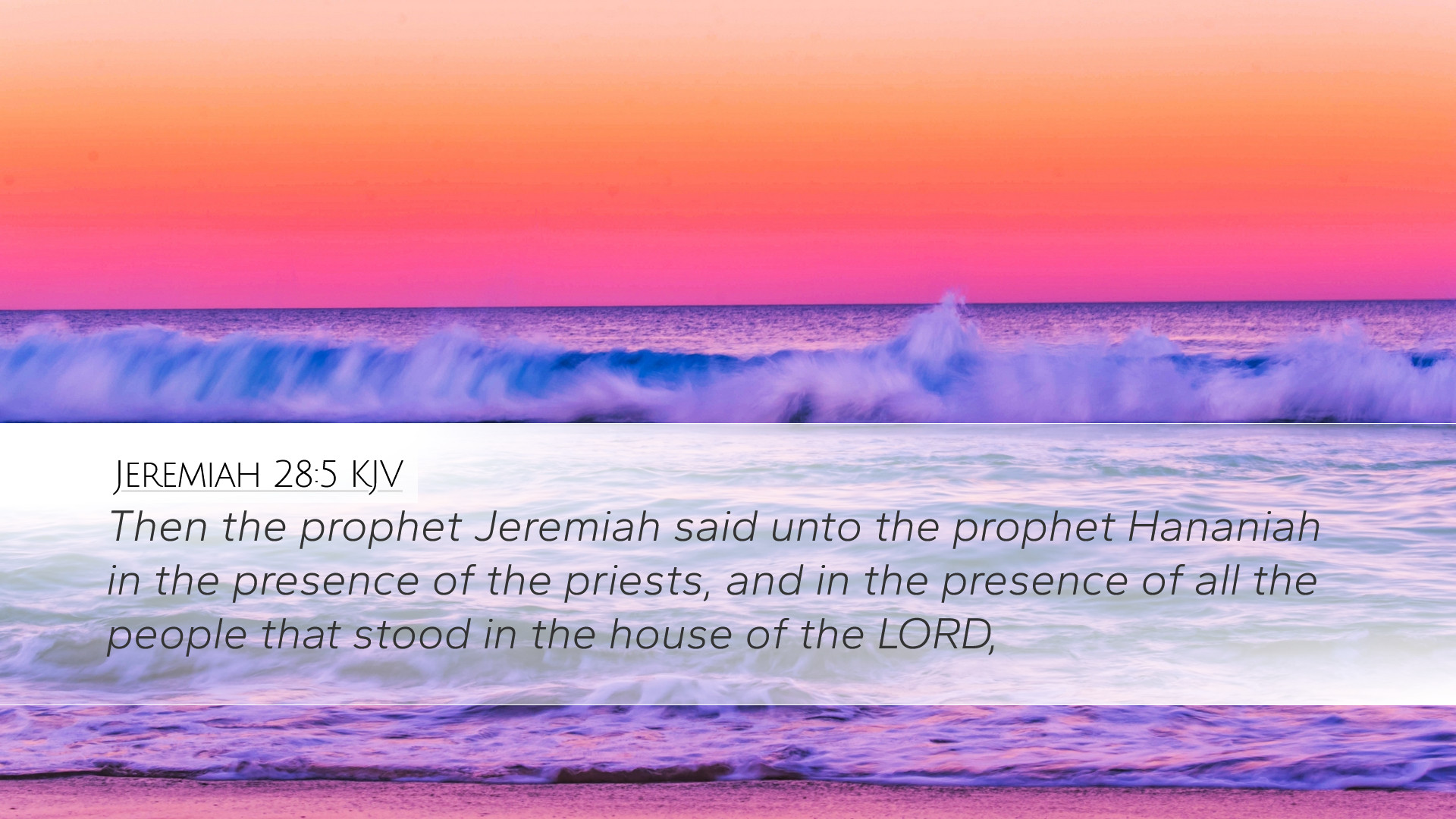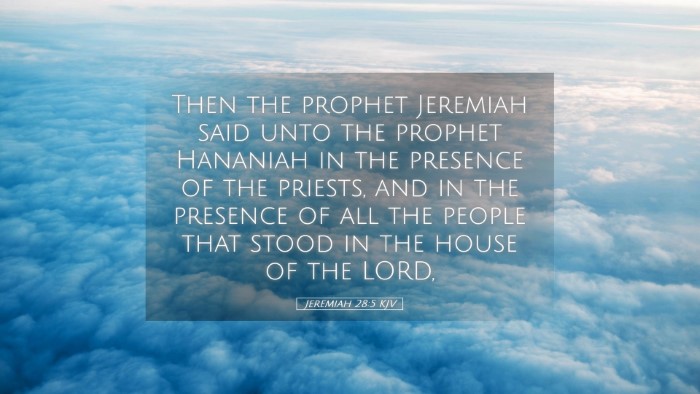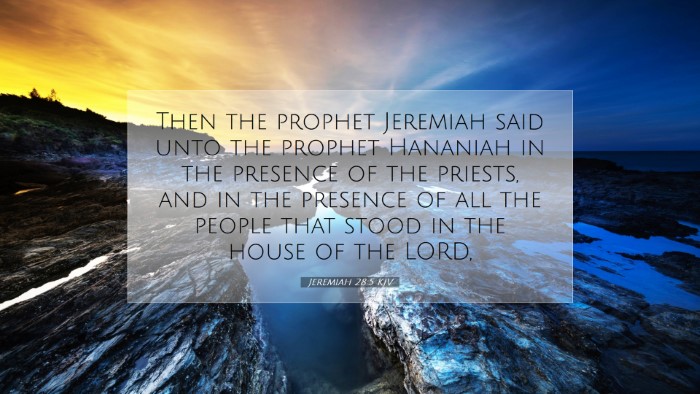Jeremiah 28:5 Commentary
"Then the prophet Jeremiah spoke to Hananiah the prophet in the presence of the priests and all the people who stood in the house of the LORD." (Jeremiah 28:5, ESV)
Contextual Overview
The book of Jeremiah, known as one of the major prophetic texts, addresses the people of Judah during a pivotal time of impending doom and exile. Jeremiah delivers God’s messages that often conflict with the optimistic prophecies of contemporaries like Hananiah. Jeremiah 28 situates itself within this prophetic struggle.
Theme of False Prophecy
In Jeremiah 28, the prophet Hananiah directly contradicts Jeremiah’s predictions concerning Babylonian captivity. He proclaims that God will break the yoke of Nebuchadnezzar and return the exiles within two years. This assertion places Hananiah in opposition to Jeremiah's messages that emphasize a longer period of exile.
Insights from Public Domain Commentaries
-
Matthew Henry:
Henry emphasizes the gravity of Hananiah's error in delivering such a message without divine confirmation. He notes that it demonstrates the tendency of people to seek hope in messages that align with their desires rather than the truth of God’s word. Henry warns against the allure of false prophets who provide comforting but misleading messages.
-
Albert Barnes:
Barnes highlights the public nature of Jeremiah’s confrontation. He suggests that by addressing Hananiah in front of the priests and the assembly, Jeremiah exemplifies the boldness required to oppose falsehood. Barnes comments on the seriousness of making proclamations in God’s name without truthful origin, indicating that such acts can lead many astray.
-
Adam Clarke:
Clarke provides a detailed analysis of Hananiah’s motivations. He posits that Hananiah’s prophecy of a quick restoration appealed to the national sentiment and desire for immediate relief from oppression. Clarke points out how such prophecies, although popular, completely undermined God's overarching plan for discipline and repentance.
Response to False Prophecy
Jeremiah’s response to Hananiah is measured yet firm. Despite the false optimism presented by Hananiah, Jeremiah’s task is not merely to resist but to communicate God’s truth.
-
Contrast in Prophetic Messages:
Jeremiah represents God's truth against Hananiah's lies. This stark contrast calls readers to carefully discern the voice of God in the messages they receive, prompting reflection on the nature of prophetic authority and integrity.
-
God’s Sovereignty:
The conflict illustrates God's sovereignty over history and His people. Jeremiah’s warning serves not only as a prophecy but also a means of urging repentance. Even in judgment, God offers hope for redemption post-exile.
Applications for Modern Readers
For pastors, theologians, and students of scripture, Jeremiah 28:5 serves as a poignant reminder of the necessity for integrity in prophetic literature. The dynamics between Jeremiah and Hananiah present an opportunity to reflect on the following:
-
Discernment in Teaching:
In a time where many voices vie for attention, discerning the truth of God’s word is paramount. Justify teachings not on popularity but on scriptural fidelity.
-
Accepting God's Plans:
Embrace the reality that God’s timing may not align with human expectation. Jeremiah teaches the importance of submitting to God’s plan, even if the path involves trial.
-
Bravery in Confrontation:
The boldness of Jeremiah serves as a model for confronting falsehood with truth. Christian leaders today must strive to uphold the integrity of God’s message against the tide of popular opinion.
Conclusion
Jeremiah 28:5 encapsulates a significant moment in biblical history, illustrating the tension between true and false prophecy. Through Jeremiah's engagement with Hananiah, the passage conveys timeless truths about the need for discernment, the reality of God’s plans, and the courage required to uphold God’s message in an age where voices of comfort often drown out the call to repentance.


